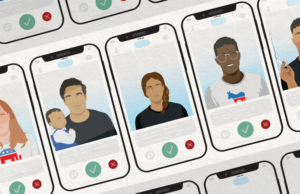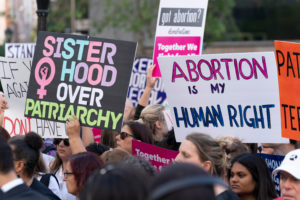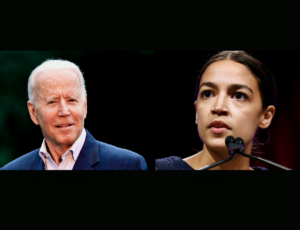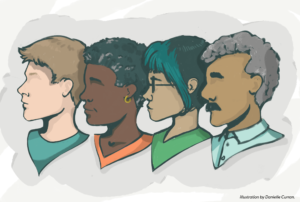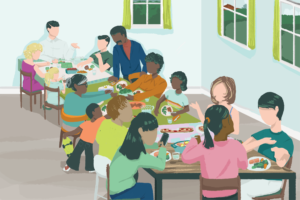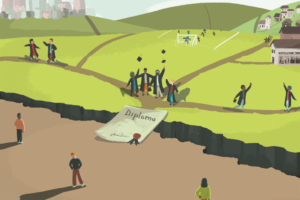All Research
Filtered with:
Survey ReportFebruary 9, 2023
From Swiping to Sexting: The Enduring Gender Divide in American Dating and Relationships
The January 2023 American Perspectives Survey sheds some light on dating preferences, experiences, and perspectives. The national survey of more than 5,000 adults age 18 and older, including nearly 800 single adults, finds that Americans have strong dating preferences when it comes to living at home, being unemployed, and smoking.
Survey ReportJanuary 5, 2023
Faith After the Pandemic: How COVID-19 Changed American Religion
The Survey Center on American Life at AEI teamed up with researchers at NORC at the University of Chicago to measure religious affiliation and attendance both before the pandemic (2018 to March 2020) and again in spring 2022, revealing who remained at the pews, who returned to the pews, and who left.
Survey ReportOctober 25, 2022
The Social Workplace: Social Capital, Human Dignity, and Work in America
Over the past two decades, American social and civic life has been on an undeniable downward trajectory. New research finds that the workplace remains an increasingly important generator of social capital in the wake of this civic contraction.
Survey ReportOctober 4, 2022
Gender, Generation and Abortion: Shifting Politics and Perspectives After Roe
In the wake of the Supreme Court overturning Roe v. Wade, the issue of abortion continues to garner widespread public attention. Young women are following the debate over abortion rights closely and more intensely than other Americans. How will it affect their vote in the upcoming election and their approach to politics?
Survey ReportJuly 28, 2022
The Democratic Party’s Transformation: More Diverse, Educated, and Liberal but Less Religious
The Democratic Party has experienced seismic demographic changes over the past few decades; becoming less Christian, more liberal, more educated, and more racially and ethnically diverse. These changes profoundly impact the Democratic Party’s future political priorities and electoral fortunes.
Survey ReportApril 27, 2022
Politics, Sex, and Sexuality: The Growing Gender Divide in American Life
The nature of gender differences is a source of enduring debate in American society. The divide between young men and women is growing larger over sex, sexuality, and politics. Men spend more time playing video games, watching pornography, and report a greater interest in politics, while women are more likely to pick up a book or meditate.
Survey ReportMarch 24, 2022
Generation Z and the Future of Faith in America
The religious and social experiences of young adults today are entirely different than previous generations. New family dynamics and parenting choices are reshaping the religious experiences of young people, setting them on a very different trajectory than past generations and making Generation Z the least religious generation.
Survey ReportFebruary 9, 2022
Emerging Trends and Enduring Patterns in American Family Life
Family dynamics are always evolving, but the emergence of new technologies, shifting economic realities, new cultural sensibilities, and social arrangements have reshaped family life dramatically. But there are enduring patterns in American family life as well. Women still do far more of the household chores, including cooking, cleaning, and laundry. Formative experiences, such as divorce, parental favoritism, and relationships have far-reaching influence.
Survey ReportDecember 13, 2021
The College Connection: The Education Divide in American Social and Community Life
Despite concerns about rising student debt, the economic value of a college education has never been clearer. College graduates are more socially connected, civically engaged, and active in their communities. College graduates have more extensive systems of social support, a larger number of close friends, and feel lonely and isolated less often than those without a degree.
Survey ReportOctober 20, 2021
Public Places and Commercial Spaces: How Neighborhood Amenities Foster Trust and Connection in American Communities
The COVID-19 pandemic forced Americans across the country to reconsider their residential priorities. Today, many Americans would prefer to live in small towns or rural areas rather than denser urban neighborhoods, and they are more likely to prioritize personal space over access to community amenities. The report investigates the physical and social features of local communities that Americans value most.

